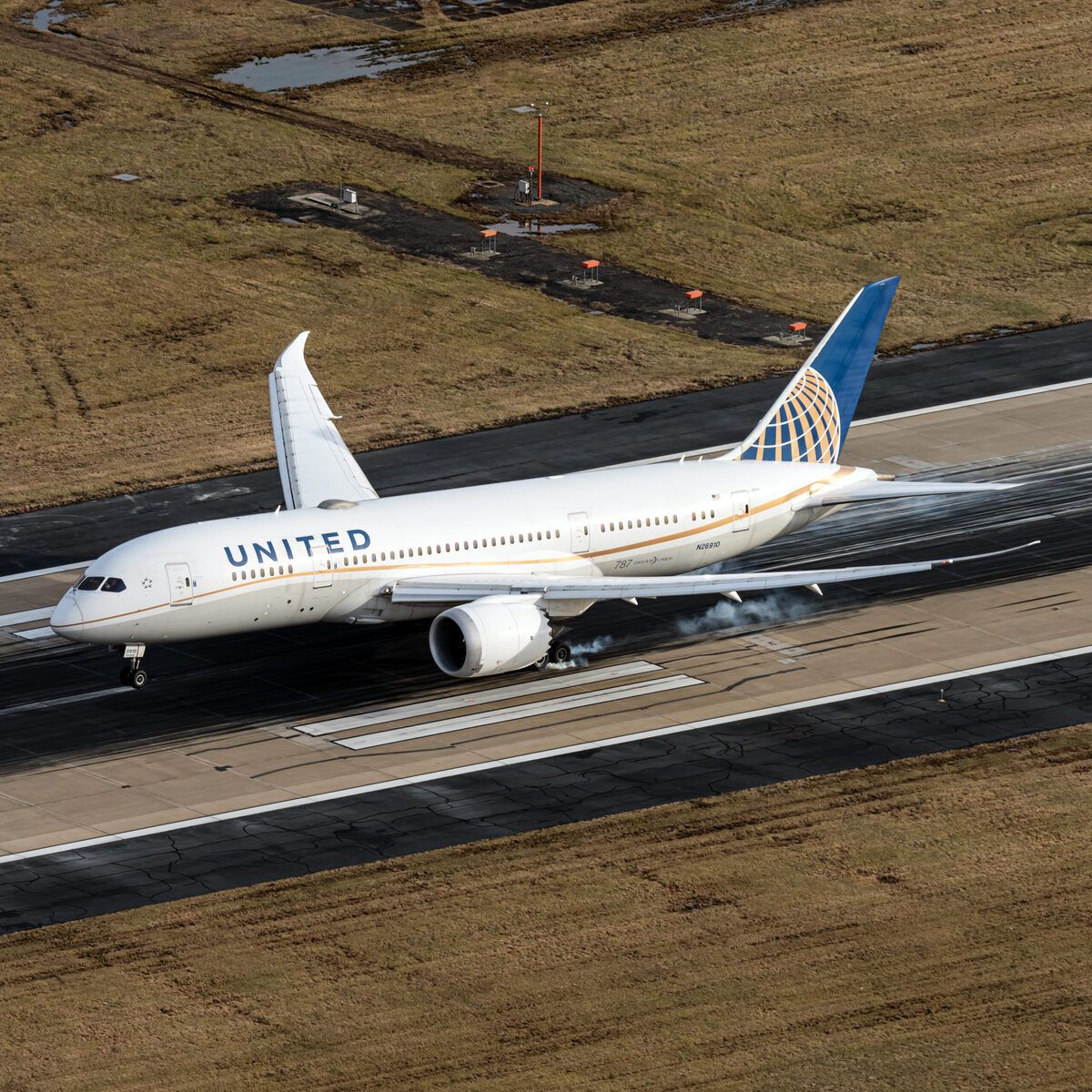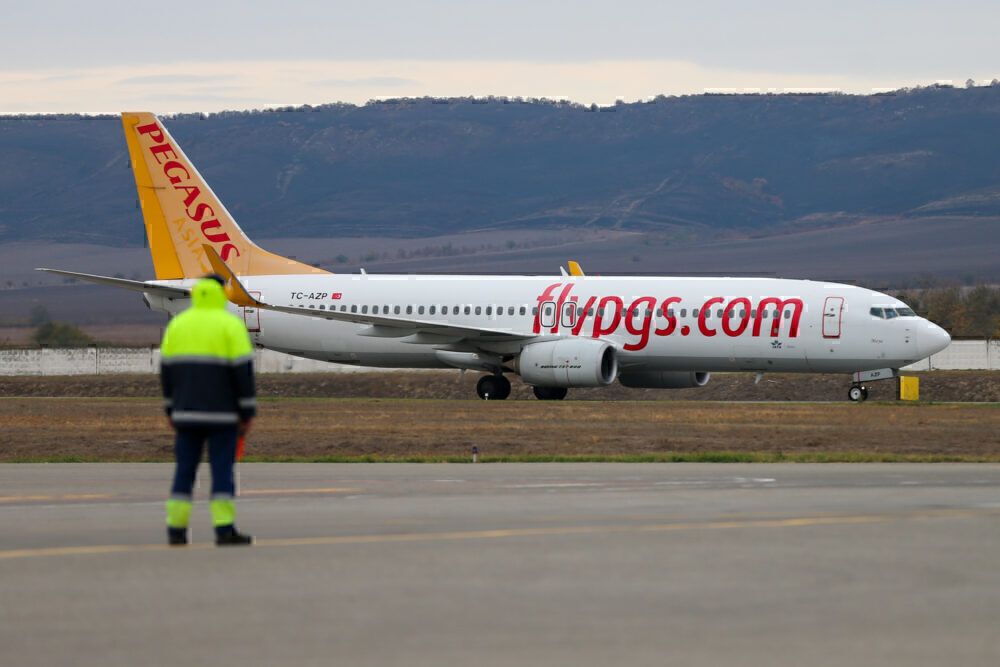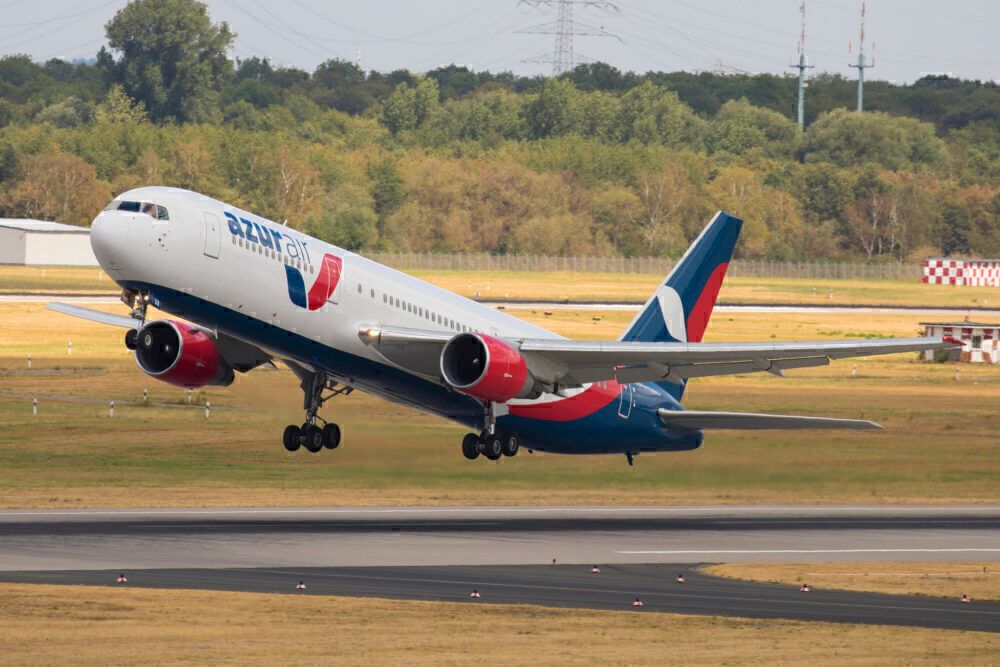When aircraft touch down, it is the pilots' priority to safely and promptly bring their speed down to a level at which it is safe to taxi away from the runway and to the stand. Doing so demands very strong brakes, which must be built to withstand the immense energy transfer required. Heat is a by-product of this, and can sometimes lead to overheating brakes.
How and why do brakes overheat?
As Flight Mechanic reports, when brakes slow an aircraft by applying pressure to its wheels, they transfer kinetic energy into heat energy. In extreme circumstances, this immense energy transfer can cause them to overheat, which poses the risk of a landing gear fire. As such, brake usage protocol is designed to mitigate this risk. For example, brakes will often be removed after an aborted takeoff, as this is another situation in which they will have been subjected to greater pressure than usual.
The risk of overheating brakes is particularly high when an aircraft lands at a higher speed than normal. An even greater energy transfer is required to slow the aircraft down to a safe taxi speed in these instances. Flapless landings, such as the one involving a WestJet Boeing 737 in July 2020, generally require aircraft to land at a higher speed. As such, if an aircraft reports that it will be making such a landing, the airport will often prepare its fire services, just in case.
Incident involving Pegasus Airlines
Simple Flying has reported on a handful of incidents in recent years where overheating brakes have forced the aircraft in question to be evacuated. The most recent of these occurred in February 2020 at Düsseldorf Airport (DUS), Germany.
This incident saw sparks emanate from the wheels of a Pegasus Airlines Boeing 737, which had arrived from Istanbul, Turkey. Upon landing in Germany, overheating brakes led to flames appearing around the plane's wheels, as reported by ground crew.
Although the fire did not prove extensive, it is always better to be safe than sorry in these instances. As such, the aircraft was evacuated, without any injuries, as a precaution.
Stay informed: Sign up for our daily and weekly aviation news digests.
Landing gear fire on an Azur Air Boeing 767
A similar incident also occurred the previous September, involving an Azur Air Boeing 767. This occurrence took place at Barnaul Gherman Titov International Airport (BAX), Russia, where the aircraft in question had landed from Nha Trang, Vietnam.
In this instance, the landing gear caught fire while it was exiting the runway, with overheating brakes once again being the suspected cause. Once again, a precautionary evacuation of the aircraft was ordered. Of the 331 passengers onboard, 20 sustained injuries in this process.
Have you ever been on a flight where the aircraft's brakes have overheated? Perhaps you've witnessed it happen while planespotting? Let us know your thoughts and experiences in the comments.



